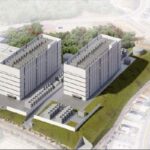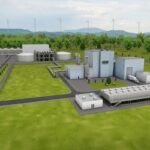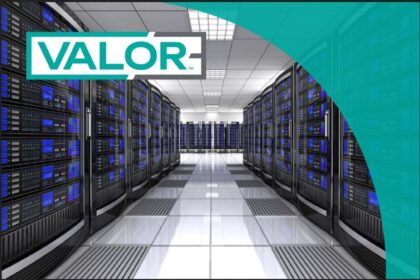Virginia’s data center industry, the largest in the world, faces increasing scrutiny due to its impact on the state’s power infrastructure. While these facilities have driven economic growth, they have also raised concerns about energy consumption and grid reliability. Recently, a series of legislative bills aimed at regulating data center development have been proposed, but the process has met with both support and resistance.
The Need for Regulation in Virginia’s Data Center Market
Northern Virginia is home to one of the most expansive data center markets globally, hosting hundreds of facilities that contribute significantly to the state’s economy. However, the rapid expansion of these data centers has strained local power and water systems. According to a report from the Joint Legislative Audit and Review Commission, Virginia is on track to face electricity shortages, with projected energy demands far exceeding supply by 2040 if current growth trends continue.
Key Legislation to Regulate Data Centers’ Energy Consumption
A bipartisan group of Virginia lawmakers introduced several bills to address the rising concerns surrounding data center development. One of the key proposals, House Bill 2027, aimed to impose stricter oversight on data centers requiring 100MW or more of power. Under this bill, data centers would need approval from the State Corporation Commission (SCC) to ensure that new developments would not disrupt the power grid’s stability. Despite its intentions, the bill was rejected by the House Labor and Commerce Committee with a 6-0 vote.
Why Was House Bill 2027 Rejected?
Critics of House Bill 2027 argued that the legislation would signal an unfriendly stance towards the data center industry, potentially discouraging investment in Virginia’s thriving tech sector. In contrast, proponents emphasized the importance of addressing infrastructure challenges before they reach critical levels.
A Victory for House Bill 1601
While House Bill 2027 faced opposition, another piece of legislation, House Bill 1601, passed through the House Counties, Cities, and Towns committee with a 5-3 vote. This bill requires data centers and other large power users to conduct more comprehensive assessments of their impact on local communities before seeking rezoning permissions. It aims to balance growth with community well-being, giving local governments more control over data center developments.
The Broader Legislative Push for Responsible Data Center Growth
Virginia’s lawmakers have made it clear that they believe the state’s data center growth must be carefully managed. Senate Bill 960 and House Bill 2101 are the centerpiece of this legislative push, requiring regulators to investigate whether data centers contribute to higher electricity rates. If data centers are found to be driving up costs, the bills would mandate the creation of new rules to ensure operators bear the financial burden.
Senator Russett Perry, a key sponsor of the legislation, warned that without regulation, Virginia could face long-term environmental and economic consequences. He stressed that unchecked data center expansion could lead to higher infrastructure costs and environmental degradation for local communities.
Governor Youngkin’s Support for Data Center Growth
Governor Glenn Youngkin has voiced strong support for the data center industry, citing its critical role in Virginia’s economy. In a recent speech, he highlighted that data centers contribute significantly to job creation and local revenue. While Governor Youngkin supports further growth, he also acknowledged the importance of balancing development with sustainable infrastructure management.
What’s Next for Virginia’s Data Center Legislation?
The proposed bills will need to pass both the House and Senate before being signed into law by Governor Youngkin. If enacted, these bills would significantly reshape how data center development is managed in Virginia, ensuring that growth does not come at the expense of energy reliability and community welfare.
FAQs
1. Why are Virginia’s data centers under scrutiny?
The rapid expansion of data centers in Virginia, especially in Northern Virginia, has raised concerns about the state’s ability to meet growing energy demands, potentially leading to grid instability and higher energy costs.
2. What is House Bill 2027?
House Bill 2027 requires data centers with energy demands of 100MW or more to seek approval from the State Corporation Commission (SCC) to ensure their development does not negatively impact the state’s power grid.
3. What is House Bill 1601?
House Bill 1601 mandates that data centers and other large power users conduct more detailed assessments of their impact on local communities before requesting rezoning for new developments.
4. How does Virginia’s data center industry impact the state economy?
Data centers support 74,000 jobs and contribute $9.1 billion to Virginia’s GDP, making them a key driver of the state’s economy, especially in Northern Virginia.
5. What’s the next step for the proposed data center bills?
The proposed bills must pass both the Virginia House and Senate before being signed into law by Governor Glenn Youngkin. If enacted, these bills would impose stricter oversight on data center developments in the state.


















